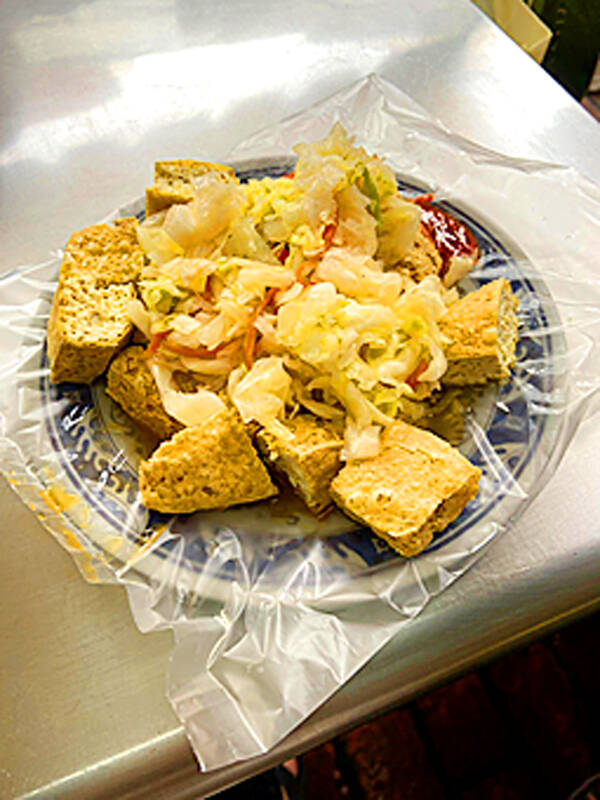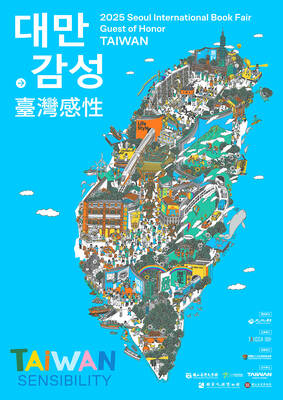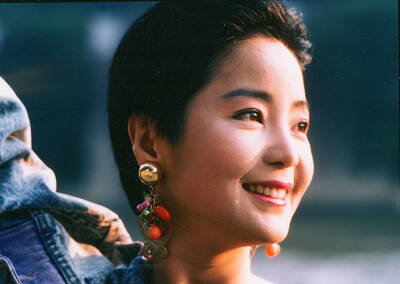If we were to talk about the least popular Taiwanese street food among foreign tourists, stinky tofu would definitely be at the top of the list. Walking through Taiwan’s night markets, even before finding a vendor selling it, you will first be hit by a strong odor. Stinky tofu is fermented soybean tofu which has a strong odor and is often deep-fried and seasoned with chili sauce or thickened soy sauce.
說到最不受外國遊客歡迎的台灣小吃,臭豆腐絕對是名列前茅。走在台灣夜市,還沒找到臭豆腐攤,強烈的氣味就先找上門。臭豆腐是將豆腐發酵製成,氣味強烈,通常以油炸烹調,搭配辣椒醬和醬油膏享用。
fermented (adj.) 發酵的

Photo: Bookman 圖片:書林
soybean (n.) 黃豆
Some people are repelled by the pungent smell of stinky tofu, but many others believe that the stronger the smell, the better it tastes. They like to pair it with the sweet pickled flavor of Taiwanese-style pickled vegetables while eating it. Unlike Korean kimchi, Taiwan’s version is not pickled for as long, preserving the crispness of the vegetables. The sweetness balances the strong flavors of stinky tofu and enriches the overall taste of the dish.
有的人聞到臭豆腐的臭味即敬而遠之,但也有人認為聞起來越臭,嘗起來味道愈好。愛吃臭豆腐的人吃的時後會搭配台式泡菜,其醃漬時間不如韓式泡菜長,保留蔬菜爽脆的口感,泡菜的甜味還可平衡發酵味,讓滋味更豐富。
kimchi (n.) 韓式泡菜
pickle (v.)(用醋或鹽水)醃漬
In addition to the commonly seen deep-fried stinky tofu, Taiwan also has charcoal-grilled and steamed versions. When it comes to determining the best version, there will be an ongoing debate among Taiwanese people depending on their personal preferences. Deep-fried stinky tofu is crispy and has a milder fermented flavor, making it more suitable for foreigners trying stinky tofu for the first time. If you enjoy a smoky taste, you might appreciate charcoal-grilled stinky tofu with a slightly charred exterior basted with barbecue sauce. Or if you prefer a soft tofu texture, steamed stinky tofu may be to your liking. However, please note that of the three types of stinky tofu, steamed stinky tofu has the strongest odor.
除了常見的炸豆腐,還有炭烤和清蒸等料理方式,若要說哪一種最好吃,台灣人會因各有所好而爭論不休。炸臭豆腐嘗起來酥脆,發酵味較淡,適合初嘗臭豆腐的外國人。炭烤臭豆腐帶有炭火的香氣,刷上烤肉醬,外皮微焦。偏好豆腐軟嫩口感的,也可以選擇清蒸臭豆腐,但要注意,清蒸臭豆腐可是以上幾種中最臭的。
Stinky tofu was invented in the Qing Dynasty by Wang Zhihe, an intellectual who had traveled a long way to the capital Beijing to take the imperial examination. He failed it and ran out of money, so he decided to stay in Beijing to prepare for the following year’s exam. To support himself, he started a business selling tofu. One day, there was a large pile of unsold tofu in the store. He cut it into pieces, cured it with salt, and stored it in a jar. A few busy months later, when he opened the jar, the tofu, rather than being properly cured, had fermented and was giving off a strong odor. Reluctant to waste the unsold tofu, he tasted it and discovered that despite its pungent smell, the tofu tasted delicious. This inspired him to sell it in his store, where it quickly gained popularity. Even Empress Dowager Cixi (1835–1908 CE) loved its taste. Stinky tofu eventually spread overseas to Taiwan where to this day we enjoy eating this smelly dish.
臭豆腐是清朝文人王致和所發明,他為進京赴考用盡盤纏,卻名落孫山,為了再次應試,便在京城賣起豆腐。有天店裡有一大堆豆腐沒賣掉,於是決定加點鹽放在罐子中醃製。數個月後他打開罐子,豆腐沒醃製成,反而發酵發臭了。他捨不得丟嘗了一口,卻沒想到臭掉的豆腐還挺美味,於是改行賣起臭豆腐,迅速大受歡迎,連慈禧太后(西元1835–1908年)都愛吃,甚至遠播台灣。直至今日,這道奇臭無比的美食依舊深受台灣人民喜愛。
imperial examination (n. phr.) 科舉
cure (v.) 鹽醃
Empress Dowager Cixi 慈禧太后
dowager (n.) 繼承財產、爵位的遺孀
smelly (adj.) 有臭味的,發臭的
文章由書林出版公司提供:
www.bookman.com.tw

The 2025 Seoul International Book Fair was held from June 18 to 22 at the COEX Convention & Exhibition Center in Seoul, South Korea. This year, participants from 17 countries attended, with over 530 publishing houses and related organizations taking part. For the first time, Taiwan participated in the book fair as the Guest of Honor, bringing together more than 85 publishers and presenting a curated selection of 550 titles. A delegation of 23 Taiwanese creatives traveled to Seoul to attend the event, including 13 literary authors, six illustrators, and four comic book artists, among which were a film director, an

In late 2024, the suicide of acclaimed Taiwanese author Chiung Yao at 86 sparked a societal debate. She expressed her desire to avoid the difficult aging process and sought to govern her own death rather than leave it to fate. Her statements propelled the issue of “euthanasia” back into the public arena, posing the question of whether Taiwan should legalize euthanasia to grant patients and the elderly the right to die with dignity. Euthanasia, the intentional ending of a life to relieve suffering, is legal for humans in countries like the Netherlands and Belgium but remains prohibited in Taiwan.

A: Wow, the 36th Golden Melody Awards ceremony is set for this weekend. B: I like all the nominees for Best Mandarin Album: Incomplete Rescue Manual by various artists, Outcomes by J.Sheon, Invisible Color by Terence Lam, The Dreamer by Khalil Fong, Haosheng Haochi by Trout Fresh and Ordeal by Pearls by Waa Wei. A: Despite struggling with serious illness, Fong managed to finish his last album before he died. B: With his hit Twenty Three, he is also nominated for Best Song, Lyricist and Composer, and will receive a Special Jury Award for his album. A: And

A: The Golden Melody Awards’ Lifetime Achievement Award will go to both musician Bruce Wong and late singer Jeff Ma. B: Some superstars also won this honor in the past, such as late singer Teresa Teng. A: Speaking of Teresa, have you heard that an unreleased Japanese song of hers was found recently? B: Really? Will the song be released? A: Yes, her track Love Song in the Night Fog is set to be released this month, marking the 30th anniversary of the legendary singer’s death. A: 本屆金曲獎特別貢獻獎頒給樂手翁孝良、已故歌手馬兆駿。 B: 以往有不少超級巨星,像是已故歌后鄧麗君也曾獲此殊榮唷。 A: 說到鄧麗君,你有聽說她生前未發布的日文歌曲被發現了嗎? B: 真的嗎?新歌會公開嗎? A: 這首歌《情歌最愛夜霧時》預計本月發布,正好紀念傳奇歌后去世30週年! (By Eddy